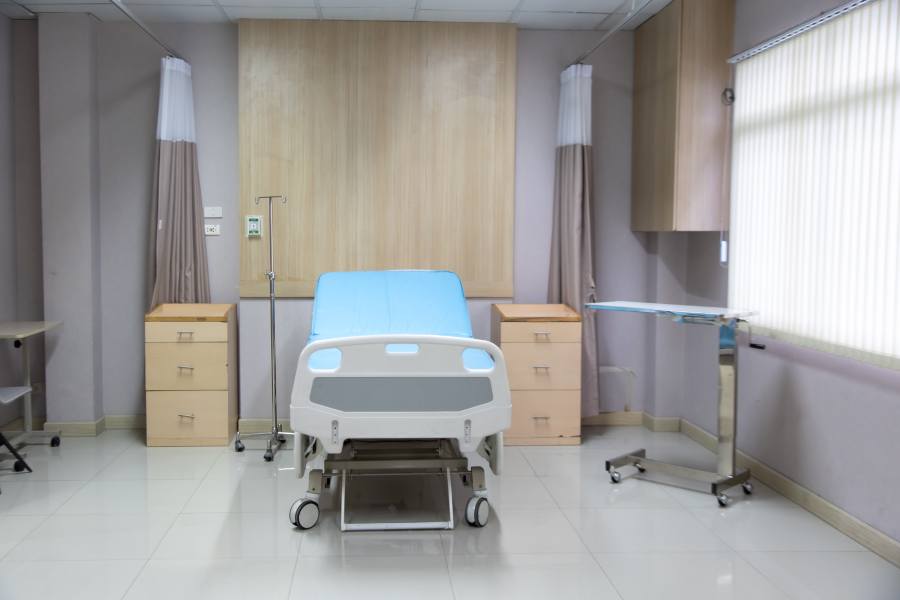Ambulatory Surgery Center Policies and Procedures
Ambulatory surgery centers provide patients with extensive operations without necessitating a hospital stay. Due to the potential for high-risk operations, ASCs are heavily regulated and have several ambulatory surgery center policies and procedures in place.
ASCs must abide by various federal and state laws and regulations. These rules control every element of ASCs. Since there’s no hospitalization, ASCs help those responsible for surgery payments to save money.
Significance of Ambulatory Surgery Center Policies and Procedures
Policies and procedures are created to encourage consistent performance across teams. They give staff and patients a clear idea of what can and can’t be done, as well as how it should be done.
Written ASC policies and procedures serve as a benchmark for using evidence-based practices in everyday operations. Mistakes might occur, and clinical treatment may suffer when team members cannot turn to a policy procedure manual.
Policies and procedures are important because they improve staff and patient communication, provide patient security, simplify accreditation, and reduce the risk of liability.
The greatest policies and procedures are properly thought out, meticulously written papers with relevant references. Also, unnecessary words should be eliminated to maintain the material fresh, constant, and brief.
No matter how beautifully put together the policy is, if it’s never read and put into practice, it has no value.
Whenever you’re drafting a policy procedure manual, keep these four ideas in mind:
- Policies should be correct and up to date
- Users may easily access policies
- Policies are safeguarded against incorrect editing
- Updates to the policy are promptly and explicitly conveyed to the necessary people

Laws ASCs Must Follow to Write Proper Policies and Procedures
An ASC cannot lawfully function unless it complies with and abides by specific federal and state regulations. These statutes outline the requirements for ASC policies and procedures. If you need help in preparing your ASC building plan, rely on a good ASC consulting service; they are here to assist from beginning to end!
Federal laws
Medicare
Medicare is a government health insurance program. It’s available to those who are 65 years of age or older, as well as some younger disabled individuals and those who have End-Stage Renal Disease (ESRD).
When an ASC provides medical care to patients who Medicare insures, Medicare assists the ASC financially. ASCs must engage in a contract with Medicare and adhere to its certification standards to receive payments. They’re known as the Conditions for Coverage (CfC).
These specifications are thorough and include every element of an ASC, from building layout to patient care. ASCs must satisfy several requirements established by the federal government in order to participate in the Medicare program.
The requirements ensure the institution is run in a way that ensures the quality and safety of patients.
All Medicare-certified ASCs must abide by all state ASC requirements. Also, many ASCs need Medicare certification to gain a state license.
Medicare’s health and safety requirements include the following:
- Compliance with state licensure laws
- Governing body and management
- Surgical Services and Environment
- Quality assessment and performance improvement
- Medical staff and records
- Pharmaceutical and nursing services
- Laboratory and radiologic services
- Patient rights
- Patient admission, assessment, and discharge
- Emergency preparations and infection control
Medicaid
Millions of Americans receive health coverage through Medicaid. People with low incomes, kids, expecting mothers, elderly people, and those with disabilities are all eligible for Medicaid insurance.
Medicaid is a joint federal and state program; therefore, both bodies contribute to funding. The March 2023 enrollment report for Medicaid revealed that 86.7 million individuals had received coverage.
Medicaid works with ASCs in the same manner Medicare does. Those insured by Medicaid will get their surgeries paid for by the program. However, an ASC must first tick all boxes of Medicare’s requirement list to be Medicaid-certified.
HIPAA
To solve various healthcare challenges, including administrative simplicity, congress created the Health Insurance Portability and Accountability Act (HIPAA) in 1996.
HIPAA requires that The U.S. Department of Health and Human Services (HHS) must create national standards for electronic healthcare transactions and national identities for providers and health plans.
The HHS must also draft privacy and security of medical data policies and procedures that all ASCs must implement.
The Administrative Simplification provisions of HIPAA requirements include:
- Privacy
- Security
- Enforcement
- Notice of a breach
HIPAA is primarily significant in ASCs when it comes to patient privacy. ASCs are lawfully obligated to secure any patient information.
All information that may be used to identify a specific person the medical staff collects is protected health information or PHI. The patient’s past or present physical or mental state, the medical care they’ve received, or the cost of it are all examples of PHI.
State laws
The Certificate of Need (CON) law is the most significant state regulation an ASC must abide by. State CON laws have as their main goal the reduction of healthcare expenses.
Their idea is to reduce costs by preventing unneeded service growth or duplication. An example is for an ASC to buy unnecessary equipment or a few units of one machine.
CON legislation proponents assert that if there’s a surplus of healthcare service capacity, there may be price inflation. The inflation would happen to compensate for the newly introduced, underutilized healthcare services or vacant beds.
Currently, 35 states and Washington D.C. maintain some form of CON law.
For an ASC to obtain a CON certificate, many district conditions must be met, and laws must be followed in each state. However, to receive a certificate, any ASC situated in a state with a CON law must finish a regulatory review procedure.
As part of this review, policies, and procedures that have already been drafted and implemented will be revised to ensure they adhere to the CON law’s constantly evolving standards.

ASC Policies and Procedures: What to Include
The starting point for writing policies and procedures documents is to follow Medicare’s requirements for what must be included in the policies and procedures. Medicare’s requirements are also known as the Code of Federal Regulations, and it includes the following:
Compliance with state licensure laws
All state and federal certifications that your ASC has earned should be listed in your policy and procedure documents.
The ASC must fulfill Medicare requirements and acquire certification from Medicare to participate in the ASC federal program and earn facility fees from public funders. Additionally, Medicare certification is necessary to negotiate with other payers for facility costs.
Compliance with state licensure law is a requirement for Medicare certification. Although Medicare oversees the ASC program, each state’s Department of Health is a separate entity with control over it.
Around 43 states in the USA require an ASC to have a state license. They outline the requirements that ASCs must fulfill to be licensed before certification.
Federal and state governments have strict guidelines ASCs must follow in exchange for increasing payments to the center. The guidelines include regulations about the physical environment, rules governing the conducted procedures, staffing, and administrative duties.
Governing body and management
The ASC must have a governing body with complete legal authority over formulating, enforcing, and overseeing the rules regulating the ASC’s overall management. The body’s responsibilities include drafting policies and procedures.
Your procedures papers should also list who represents the governing body and their responsibilities. You might also mention how the governing body manages its duties.
The performance improvement and quality evaluation program is under the governing body’s control. Moreover, it makes sure that facility rules and programs are carried out in a way that offers top-notch medical treatment in a secure setting.
Surgical services
ASCs must also have a reliable way to transport patients to a hospital in case of an emergency. Your “surgical service policy” must have written instructions defining the procedures for ambulance services and the transfer of medical information.
All surgeons doing surgery at an ASC must either have admitting privileges at a designated hospital or an ASC must have a documented transfer agreement with a local hospital.
Quality assessment and performance improvement
One crucial way to ensure patients get the best treatment possible is to mandate continual quality evaluation and performance improvement.
A list of the metrics used to measure quality and performance and the findings from those metrics must be included in your policies and procedures folder.
An ASC is expected to carry out a continual, thorough evaluation of the level of care delivered. ASCs should also implement a performance improvement strategy to guarantee that patients continue receiving the best treatment possible.
Environment
Your surgical facilities‘ physical surroundings may greatly influence efficiency and patient satisfaction. The following seem to be the two most crucial considerations while constructing an ASC:
Efficient layout
Your ASC’s traffic flow must be efficient for your personnel and patients. A neat, well-organized atmosphere can significantly impact a patient’s satisfaction.
Think about how much room you’ll need for pre-op activities vs. recuperating from surgery.
You should also take infection management into account while planning your layout. Your ASC should be designed to restrict moving from dirty to sanitary sections to reduce the likelihood of contamination.
Making documentation digital
Making your patient records digital is one of the most important steps you can take to maximize storage capacity. This strategy offers several advantages, such as increased productivity, greater interior space, and lower courier costs.
You may also integrate charting software with scheduling software. Patients may complete pre-admission paperwork and medical history at home with this approach.
Your physicians will have less work and redundant tasks to complete, increasing accuracy and reducing the need for physical storage.

Medical staff
The ASC must create a staffing strategy that they will include in the policies and procedures folder. The plan specifies the total number of employees and the targeted skill levels for each employee.
First and foremost, a current job description should outline the duties of every employee. To ensure that the knowledge and abilities of the clinical and nonclinical employees align with the demands of the role, ASCs should follow a well-defined procedure.
Moreover, each staff member’s competency in performing job duties to satisfy patient demands should be continuously evaluated, maintained, enhanced, and recorded.
To retain or enhance their skills and knowledge, each employee should receive regular in-service education, training, and other types of instruction.
Additionally, the ASC should employ an ongoing standard procedure to assess the efficiency and security of the patient care delivered.
The ASC could also create and implement a personnel health and safety program.
Nursing services
A specialized ambulatory care nurse, a same-day surgery nurse, delivers episodic care to patients in various settings.
The nurse should provide patient care before and after the outpatient surgery. Nurses who provide ambulatory care and same-day surgery care should help patients by promoting health, avoiding illness, and managing acute or chronic health issues cost-effectively.
The nurse encourages self-control and helps friends or family care for their loved ones.
Medical records
Numerous federal and state regulatory agencies have strict regulations governing ASC billing. Complete documentation will back up every procedure code you billed and give payers a full picture.
For ambulatory surgical services, complete paperwork requirements include the following:
- Paperwork for the history and physical examination of patients
- Paperwork for preoperative medical records
- Paperwork for postoperative medical records
- Paperwork on anesthesia
- Discharge paperwork
Pharmaceutical services
Ambulatory surgery centers need a pharmaceutical partner to adapt to their circumstances. Every ASC has different requirements; thus, pharmacy providers must be ready to offer specialized services made specifically for outpatient surgical centers.
You should list your pharmaceutical partners and the products they provide in your documentation. Patients have a right to know who is supplying their pharmaceuticals and medications that are given to them.
A component pharmacy partner must be able to promptly and professionally reply to inquiries as one of their requirements.
A pharmacy partner should be able to walk ASCs through the procedure so they know what to anticipate during the next stages of their collaboration.
More comprehensive services may consist of anything, such as advice on:
- How to become licensed by the DEA and for CSA
- How to secure premix with a 24-hour shelf life
- How to conduct mid-construction audits
Laboratory and radiologic services
An ASC must have policies in place for acquiring regular and urgent laboratory services from a licensed laboratory if it doesn’t offer its own laboratory services.
To perform the referred tests, the referral laboratory must be qualified in the relevant specialization and subspecialties of service.
The ASC should supply radiological services only when necessary and in conjunction with procedures.
If radiologic services are used, the governing body must choose someone competent in accordance with state legislation and ASC standards. This person would oversee the provision of all radiologic services professionally and ethically.

Patient rights
ASCs should include a patient’s rights policy that can be accessible to both the medical staff and the patients.
A few examples of what the patient’s rights policy should explain are:
- Which information the patient has the right to know from the medical staff
- The patient treatment policy given to the staff
- What the patient isn’t permitted to do
- What information the patient is and isn’t required to disclose
Infection control
ASCs must create a program to recognize and prevent illnesses, uphold a hygienic environment, and report results to the proper authorities.
Specific protocols for the prevention, early identification, control, and investigation of infectious and contagious illnesses must be included in the program.
These regulations should follow the advice of nationally renowned infection control experts like the Centers for Disease Control and Prevention (CDC).
Patient admission, assessment, and discharge
ASCs are required to keep accurate, thorough, and full medical records. A physical examination and medical history pertinent to the surgery’s purpose and the intended form of anesthesia should be included.
Also, a doctor must check the patient just before surgery to assess the anesthetic risk and the nature of the treatment.
Each patient must undergo a medical evaluation before being discharged to ensure it’s safe for them to go.
Emergency preparations
Based on risk analysis, the ASC must create an emergency plan and communication strategy. Also, it would help if you implemented emergency preparation rules and procedures. Emergency policies and procedures must be reviewed and revised every two years.
The policies and procedures must, at the very least, include these topics:
- An emergency location tracking system for staff members who are on duty and patients who are being cared for
- Safe egress from the ASC requires the following:
- Transportation
- Employee responsibilities and obligations
- Identifying an evacuation site
- Taking into account the evacuees’ medical requirements
- Primary backup channels of communication with outside aid providers
- A way for patients and staff who are within the ASC to find shelter or refuge
- A system for recording medical information that:
- Protects patient records
- Secure records accessibility
- Different staffing procedures, including volunteer employment in an emergency
- Integrating state and federally-approved care personnel to handle surge requirements during an emergency
Source: shutterstock.com/ Photo Contributor: Pixsooz
Other Important Policies and Procedures
In addition to the points mentioned above, be sure to have the following in mind while drafting your ASC policies and procedures:
Policy against smoking
It would be best to impose a “No Smoking Policy” as a healthcare organization, as smoking has risks. Smoking shouldn’t be permitted inside the structure or close to any entrances.
Smoking should only be tolerated outside the institution and in designated smoking places for the sake of everyone’s health.
Visitors policy
Many individuals will be coming and leaving your healthcare center, even if patients won’t be staying the night. Here are some recommendations regarding the visitor’s policy’s contents:
- Patients shouldn’t be visited by anyone who has a cold, a sore throat, or any other contagious illness or symptoms
- Visitors must be properly dressed; they should always have some type of pants, a shirt, and shoes on
- When the doctor or nurse wants to see the patient for testing, visitors may be requested to leave the room
- Visitors ought to keep the area calm and don’t make any unwanted and unnecessary noise
- Service dogs should be allowed; however, they should wait in the lobby while the operation is in progress
Discrimination and harassment policy
You should have two types of discrimination and harassment policies for patients and your staff. The policies should emphasize that your facilities do not discriminate based on race, age, religion, nationality, sex, ethnic origin, or marital status.
You should clearly state what you and your organization stand for and communicate it to your employees and patients. These rules reflect the organization’s moral and ethical values.
Satisfaction survey policy
It would help if you cared about your patient’s opinion. You should include a Patient Satisfaction Survey program requiring all patients to fill out.
You can print it out on paper and give it to the patients while they rest or mail them an electronic version after discharge. Also, it would be best not to forget to make the survey anonymous and inform your patients.

Conclusion
Up-to-date established and enforced policies and procedures are essential in the healthcare sector. Any worker required to adhere to your policies and procedures should be aware of what they are and the steps they should take to follow them.
Moreover, to be Medicare and Medicaid-certified, you must draft policies and procedures. You cannot manage an ASC if you’re not Medicare-certified.
Your ambulatory surgery center policies and procedures should aid in formulating rules for your organization’s daily operations and key choices and actions.





